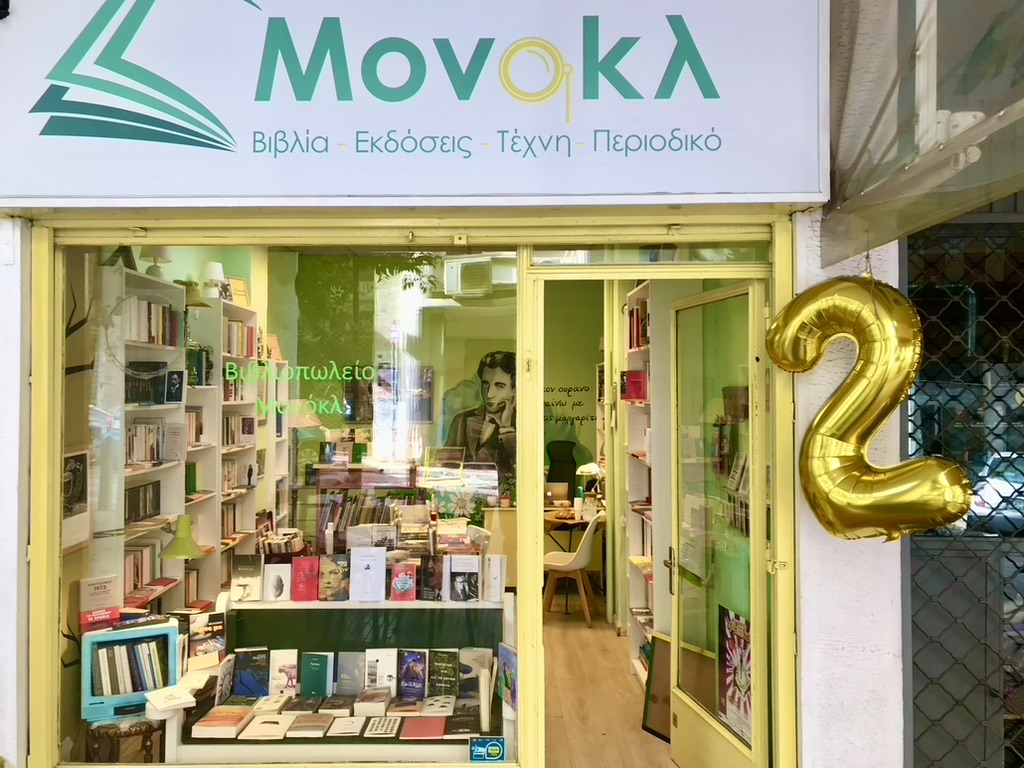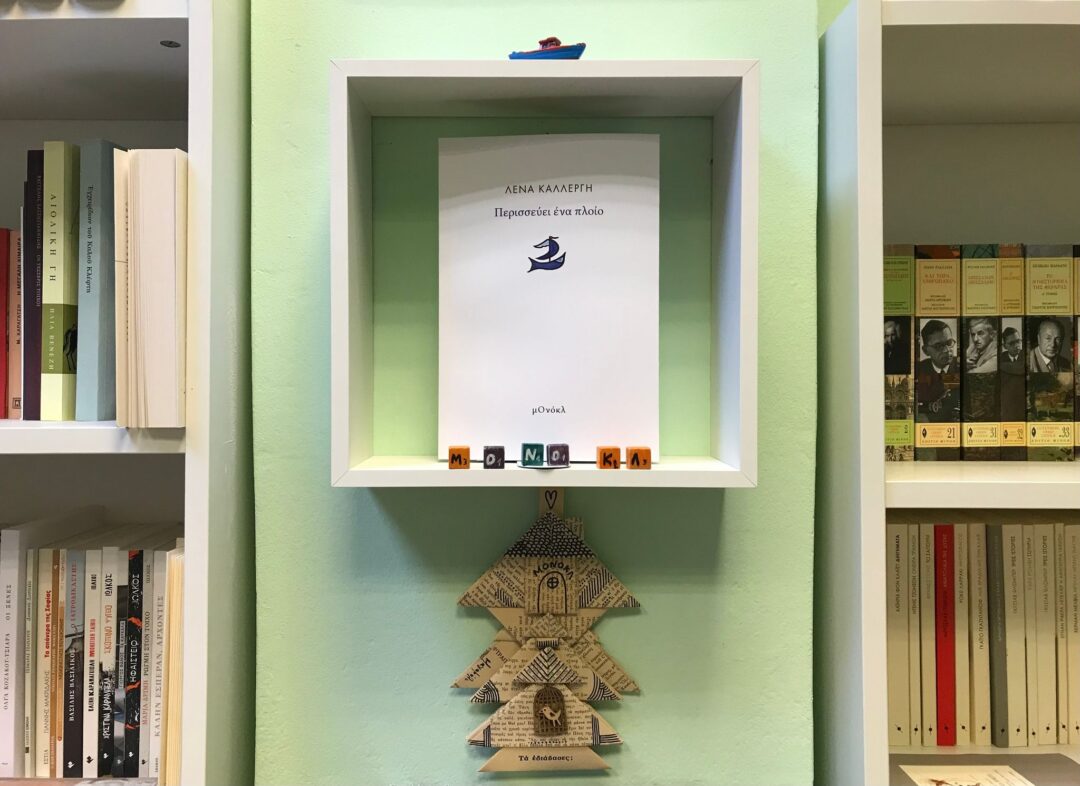Little bookstores constitute an integral part of our culture and our local communities. It’s the place where writers can connect with readers, where we discover new, unknown worlds, where children are captivated by the thrill of reading that can last a lifetime. They are the places that never stop inspiring us, uniting us and spreading the love for books.
Reading Greece* spoke to Antonis Tsokos, owner of Monocle Bookstore and Editions about the role of little bookstores and their influence on reading preferences, as well as the challenges they are faced with and the prospects ahead.

It’s been two years since Monocle opened its gates, while quite recently it also became a publishing house. What’s the story behind these ventures of yours?
The idea of creating a bookstore existed in my mind for several years. Circumstances were not favorable for this wish of mine to be realized sooner. The pandemic also played an important role in making the idea a reality. In the pandemic I realized how fragile reality is. The only future we can invest in is the present. So, I made the decision. In September 2021, Monocle opened its doors to the public. Almost two years later, Monocle publications were also created, with the first book being the re-edition of Lena Kallergi’s award-winning poetry collection Περισσεύει ένα πλοίο [A ship to spare].
Two translated poetry collections, two novellas and a novel will follow.
How important is the role of little bookstores? How do they influence reading preferences?
The role of little bookstores is more important than most people think. Without little bookstores, non-commercial readings, such as the theater and poetry, could not survive. The way an independent bookstore operates is completely different from chain bookstores. The titles on the shelves of little bookstores constitute personal choices of the booksellers. The relationship between the reader and the bookseller is not a customer-seller relationship, but a relationship of trust.
The aim is not only to sell, but encourage the reader to return to the bookstore. For this to happen, it takes effort and a lot of work. The selection of books must be made with objective criteria and not exclusively for commercial purposes.
Which are the main challenges little bookstores face nowadays? How do you respond to these challenges?
The challenges that little bookstores are faced with are numerous. First of all, let’s say that there is no state support care and support for the sector. Instead, small businesses, including bookstores, are faced with very adverse conditions. There is no protection for professional leases, and contributions to insurance funds are also unaffordable. Our only ally in our effort to stay alive is the readers. They are the only ones who give us the courage to continue.

Would you say that the recent socio-economic crisis and the pandemic that followed has broken the ties connecting part of the readers with the choices and orientation of traditional publishers, creating an aesthetic and intellectual space that may certainly grow?
I am not sure whether it’s the financial crisis or the pandemic, but there have certainly been several reshuffles in the publishing industry. New publishing houses were created with interesting proposals for readers. With less commercial texts in both prose, poetry and essays. What remains to be seen is the consistency and continuity of these new efforts.
In the era of online communication, how have the social media influenced what people choose to read? How have reading preferences changed/evolved during the years?
Social media are almost everywhere. Books could not be an exception. Less experienced readers can be influenced by the bombardment of new titles that appear on their screens every day. Fortunately, however, the image has not imposed itself on the text. Both traditional bookstores and publishing houses have helped to this direction through the wise use of social media.
We should neither demonize nor deify technology. As in all areas of our lives, the solution lies somewhere in the middle. It’s not all white or black, there’s always grey.
*Interview by Athina Rossoglou
TAGS: LITERATURE & BOOKS | READING GREECE

![Reading Greece: A tribute to [FRMK], a Literary Magazine on the Poetic Phenomenon and its Relation to Arts and Society](https://www.greeknewsagenda.gr/wp-content/uploads/sites/2/2023/03/frmk_INTRO_1-440x264.jpg)











